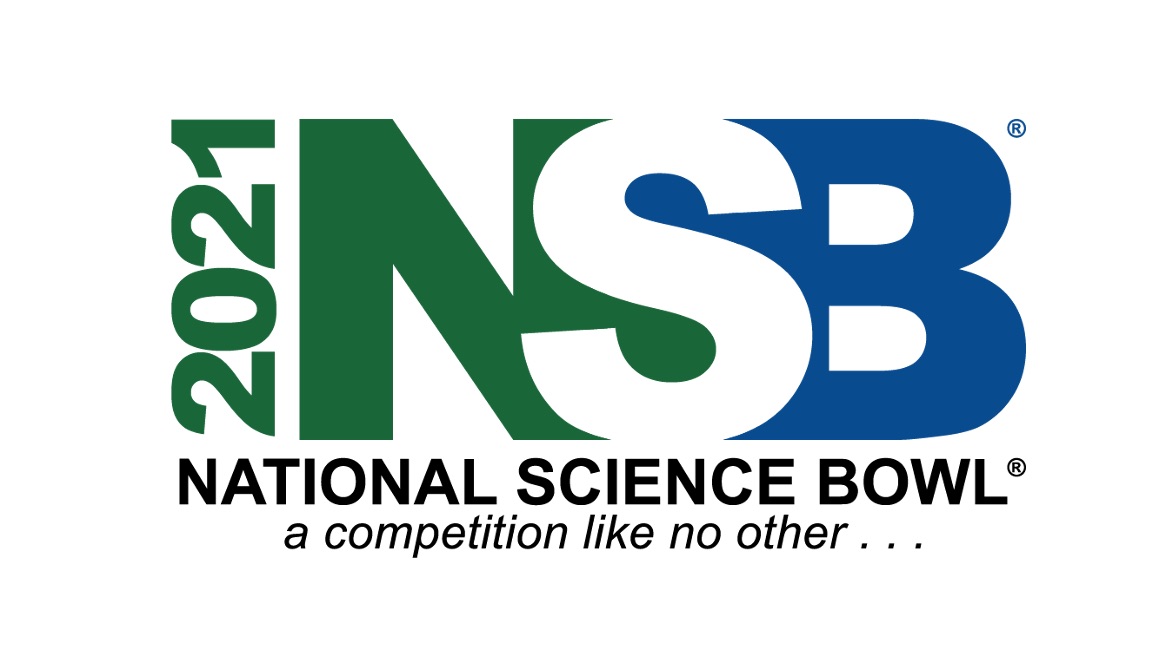Jefferson Lab will host the Virginia Regional High School Science Bowl competition on Saturday, Feb. 6, 2021
NEWPORT NEWS – Members of the media are invited to observe portions of the Virginia Regional High School Science Bowl on Feb. 6, 2021.
What: The Virginia Regional High School Science Bowl competition will be held virtually by the U.S. Department of Energy’s Thomas Jefferson National Accelerator Facility.
Who: Teams from 10 Virginia high schools are registered to compete in the 2021 competition, including two teams in Hampton Roads, Virginia. Each team is comprised of three-five high school students and a teacher who serves as both advisor and coach. Teams include:
Charlottesville High School (Charlottesville)
Governor's School for Science and Technology (Hampton)
Langley High School (McLean)
Madison High School (Vienna)
St. Christopher's School (Richmond)
T.C. Williams High School (Alexandria)
Thomas Jefferson High School for Science and Technology (Alexandria)
Tidewater Academy (Wakefield)
William Byrd High School (Vinton)
Yorktown High School (Arlington)
When: Saturday, Feb. 6, 2021.
Where: Virtual Event.
Time: Opening Session, 8:15 – 8:45 a.m.
Closing Session, 4:15 p.m.
Credentials: News media may contact the Jefferson Lab Communications Office representative listed below by noon on Friday, Feb. 5, to attend the tournament’s virtual opening or closing sessions or to receive the results at the end of Saturday's competition and links to recordings of the virtual competition.
Background: The National Science Bowl® has been sponsored annually by the U.S. Department of Energy’s Office of Science since 1991. Since its inception, approximately 315,000 middle and high school students have participated in tournaments around the country. The competition is meant to encourage students to excel in math and science and to pursue careers in science, technology, engineering and math.
Participating teams are quizzed on their knowledge of math and a range of science disciplines, including biology, chemistry, earth science, physics and energy. In each round, each team will have the opportunity to answer all 18 toss-up questions, with each correct answer worth four points. For each correct toss-up question, the team will also be given the opportunity to answer a bonus question for 10 points.
Every team will compete in two preliminary rounds. Each team’s scores in the preliminary rounds will be combined for a total score to determine the top-scoring eight teams who will compete in the elimination rounds.
The top three teams at the regional competition on Feb. 6 will earn cash prizes and team trophies for their respective schools. The top team will also represent Virginia at the National Science Bowl® finals, with preliminary rounds to be held virtually in April. The top 32 high schools will then compete in the virtual elimination tournament on May 22.
The DOE’s Office of Science manages the National Science Bowl® and sponsors the finals competition. The Office of Science is the single largest supporter of basic research in the physical sciences in the United States and is working to address some of the most pressing challenges of our time.
To learn more about DOE's National Science Bowl competition, visit: https://Science.Osti.Gov/Wdts/Nsb
For sample sets of questions and answers that have been used in previous competitions, visit: https://science.osti.gov/wdts/nsb/Regional-Competitions/Resources/HS-Sample-Questions
Contact: Kandice Carter, Jefferson Lab Communications Office, kcarter@jlab.org


